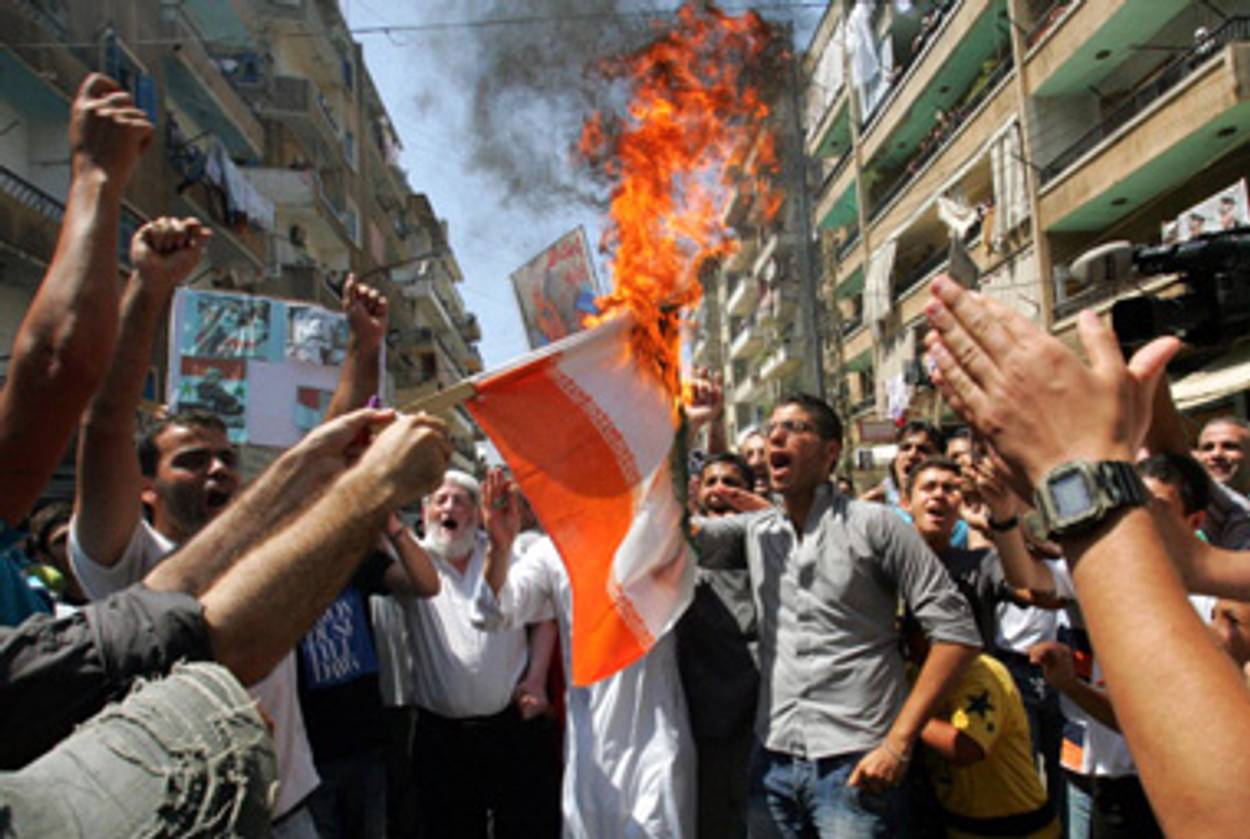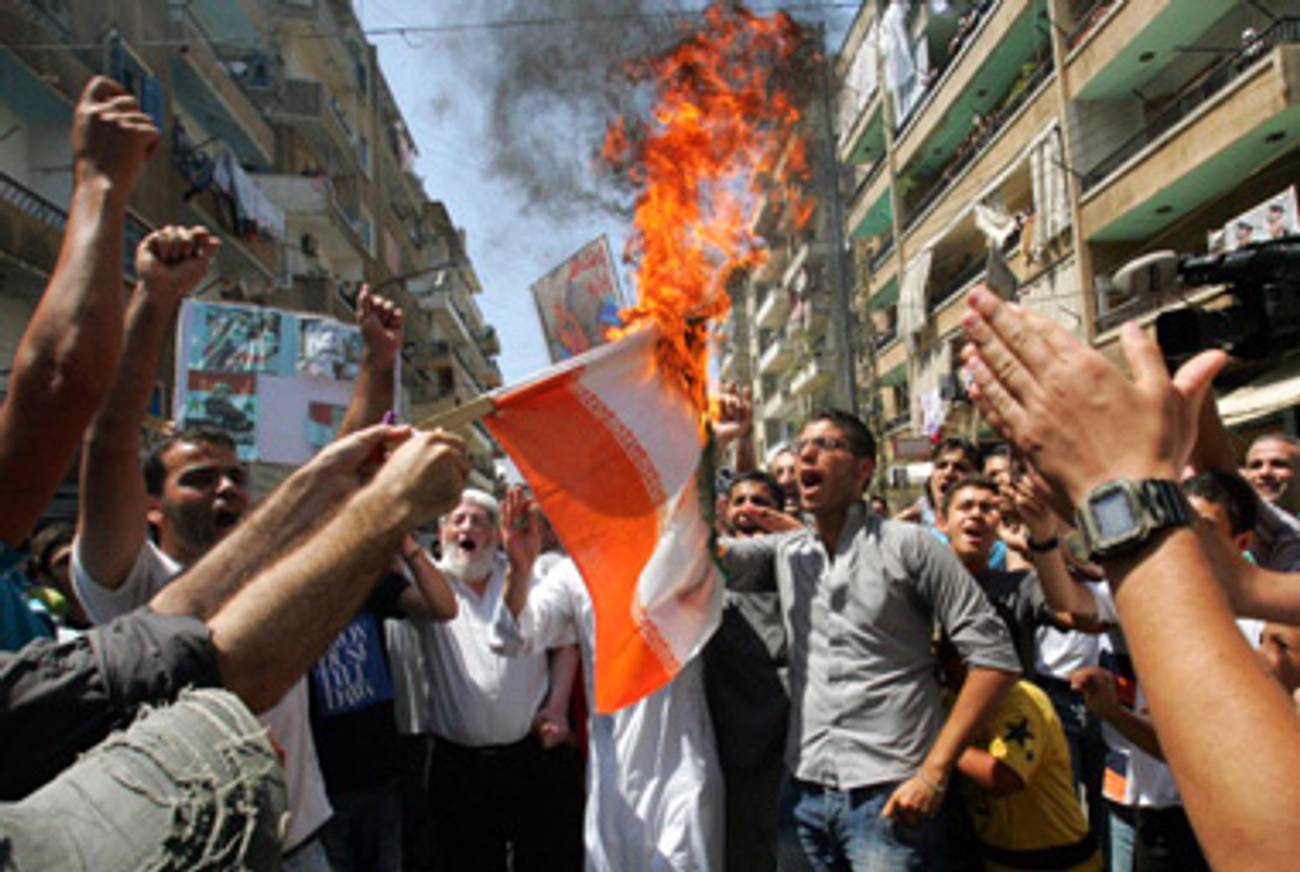Amidst Crackdown, Syria Recognizes Palestine
Meanwhile, U.S. backs away from supporting dissidents




The contrast could not have been more stark, or less explicable: On Saturday, Secretary of State Clinton offered only vague, noncommittal rhetoric in support of Syrians protesting President Bashar Assad, only a day after the United States had formally recognized those fighting Libyan leader Moammar Gadhafi (with the aid of Western, including U.S., military support). The State Department’s reasoning is that it lacks a clear idea of who the Syrian dissidents are—as opposed, y’know, to the ragtag, frequently amateur, and potentially Islamist Libyan rebels.
“This is not anything the United States or any other country is doing,” Clinton said. “It’s what the Syrian people are doing, trying to form an opposition that can provide a pathway, hopefully in peaceful cooperation with the government, to a better future.” This echoes the worst rather than the best of the fiery, sometimes inspiring rhetoric that U.S. ambassador Robert Ford has provided. Meanwhile, also Saturday, plans for Syria’s main opposition-in-exile, based in Istanbul, to teleconference with dissidents near Damascus were disrupted when pro-Assad forces found the gathering and killed 15. So the operative word in Clinton’s “hopefully in peaceful cooperation with the government” appears to be “hopefully.”
More disheartening is that what “the Syrian people are doing” is hampered by who “the Syrian people” are—namely, a fractious mass of several different groups, most of whom feel none too kindly toward the others. Sectarian violence claimed several lives yesterday, with a few Alawites—members of the small, idiosyncratic Shia sect who also make up the Assad regime and many shabiha, or non-uniformed pro-regime security forces—found gruesomely disposed of in Homs, Syria’s second-largest city. (Yesterday, the Alawites of Homs struck back, killing 10.) Moreover, a problem that has also surfaced in the Egyptian Revolution is present here: Many of the actual protesters in the streets and the emerging Local Coordination Committees are composed of young people who hate the regime above all but also have little interest in joining forces with the older, old-guard opposition sitting the street-fighting out in Istanbul or elsewhere.
And worst of all, the Assad regime is in a position to unify the country behind it because it knows exactly which card to play: Israel. Yesterday, according to a state news agency, Syria’s government officially recognized a Palestinian state along the pre-1967 lines with a capital in East Jerusalem (which, as clever people have pointed out, implies that Assad supports a two-state solution, but the fact is the thugs in Damascus don’t do nuance). Though the sentiments behind this gesture are not new and the timing could be tied to the Arab League’s endorsement last week of the U.N. statehood route, it is difficult not also to see it as an attempt to rally domestic support behind one issue that broad a coalition can back.
Syrian Killings Stall Bid to Unite Opposition [WP]
Deaths in Syria Tied to Rifts Between Sects [NYT]
‘Syria Officially Recognizes Palestinian State’ [JPost]
Related: Sons of the Revolution [The New Yorker]
Reporter’s Notebook: Reading the Rebels in Western Libya, Part II [At War]
Storm Over Syria [NYRB]
Earlier: Ambassador Ford Stands Up for Syrians
Marc Tracy is a staff writer at The New Republic, and was previously a staff writer at Tablet. He tweets @marcatracy.